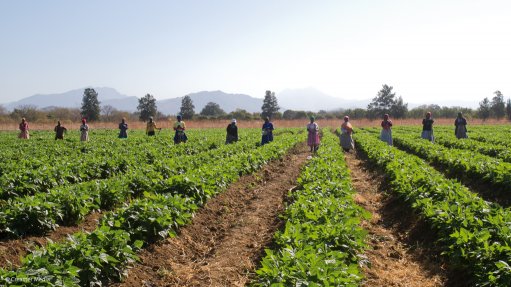
Demand for State-owned land and agricultural financial services provider Land Bank’s recently announced drought relief concessional loans is surging as South Africa’s record-breaking drought conditions continue to cause widespread devastation to agricultural crops and livestock.
The bank stated on Tuesday that it had received applications for loans amounting to just under R200-million to date.
“While these applications have not been approved yet, the demand gives a glimpse into the bleak future [of the local agricultural sector]," said Land Bank executive manager for commercial development Sydney Soundy on Wednesday.
Speaking at a forum held on the sidelines of the National Maize Producer Organisation (Nampo) Harvest Day 2016, Soundy noted that, earlier this year, Stats SA released gross domestic product figures showing three consecutive quarters of steep decline in agricultural activity.
In the third quarter of 2015, the sharp decrease was mostly attributed to falling field crops production, including maize, sunflowers and sugar cane.
“As yields of these crops shrivel under the dry spell, they will more than directly impact on food prices and are more than likely to be passed on to consumers,” said Soundy.
According to Stats SA’s Consumer Price Index, South African consumers paid 10% more for a basket of groceries in March 2016 than they did in March 2015.
Soundy said that this rise was the highest monthly year-on-year rise in food price since February 2012, adding that the drought would not only affect the current production season, but might also have long-term debt implications for farmers.
“The inability or unwillingness [of farmers] to plant crops could contribute to food insecurity,” he said.
Soundy also noted that, as farmers across the country began to weigh their options and considered planting for next year’s crop, ensuring they had access to low interest loans to sustain and build their farms was critical.
He pointed out that the concessional loans were aimed at supporting farmers in overcoming the immediate challenges of the drought and ensuring long-term agricultural production, growth and food security.
“The loans could be used as a source of emergency working capital to reduce further losses to current farming operations, carry over debt, as well as repair and replace weather-damaged property and equipment,” he said.
He stated that the sooner capital injection was made into farms, the quicker the potential was to recover.
“We are encouraging farmers to apply for the loans so we can cushion the impact of the crippling drought,” he concluded.